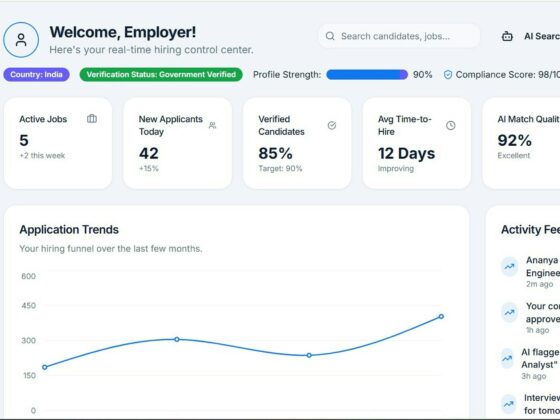
The hospitality industry has historically lagged behind other sectors in adopting modern technology. According to a McKinsey and Harvard Business Review report, the sector scores just 1.875 on a digitalization index, well below the cross-industry average of 3.025.
Hotels aren’t allergic to innovation – they’re buried under legacy systems and poor-quality data. As a result, most are still focused on foundational issues, such as integrations and manual reporting. According to the State of Distribution 2025, more than 80% of hotels spend up to two full workdays per week stitching reports together – time that could be redirected to strategy, not spreadsheets.
AI offers a way out of this cycle – not just as a guest-facing chatbot, but as a system-wide productivity engine. When integrated into modern infrastructure, AI helps hotels move faster, reduce friction, and focus their business on what matters most: the guest.
What AI Means for Hoteliers
AI is already being used to varying degrees to collaborate, create content, and solve problems. Here’s how:
- Large Language Models (LLMs): In your brand’s voice, generate multiple versions of marketing emails, room descriptions, upsell messages, website copy, etc..
- Generative AI (GenAI): Create ad visuals, teaser videos, or enhance room photography with tools that create content.
- Agentic AI: Think of it as an intelligent assistant that can complete multi-step tasks once you give it a goal. It doesn’t just provide suggestions; it can also take action on your behalf.
- Swarm AI (early stage): Multiple AIs working together – imagine specialized bots adjusting rates, writing promotions, answering guests’ questions, monitoring guest sentiment, and coordinating with your hotel team – all in sync.
For hoteliers, AI isn’t about replacing staff. It’s about improving the output of every team member across sales, marketing, revenue, and guest services.
Travelers are increasingly turning to AI tools to plan their trips. An HSMAI survey found that 71% of U.S. adults are open to using AI for travel planning; however, most of these tools currently lack access to live hotel data. That means if your hotel isn’t connected, you might not show up, or worse, the AI delivers outdated or incomplete information.
Why AI Is a Force Multiplier
Organizations are already using varying degrees of AI in nearly every part of their operations:
- Operations: Answering guest requests without human interaction.
- Marketing: Generate ad copy, images, graphics, videos, blog posts, etc..
- Revenue: Forecast, price, and adjust in real time with less manual input.
- Business Intelligence: Turn raw data into actionable insights.
AI ranks last on hotels’ technical investment priorities lists (State of Distribution). Why? Because most are still trying to fix system basics. But AI isn’t the reward for solving those problems, it’s the tool to solve them faster.
A Legacy of Machine Learning
AI isn’t new to the hospitality industry. For over a decade, revenue management systems, such as IDeaS and Duetto, have applied Machine Learning, a form of AI, to analyze booking patterns, competitor pricing, and demand curves to recommend real-time rate adjustments.
What was once limited to yield management is now being applied across sales, marketing, and guest experience. AI isn’t replacing the commercial strategy, it’s accelerating it.
Clean Data Is the Gateway
AI is only as good as the data it’s fed. If your systems are full of outdated or inconsistent records, no model, no matter how advanced, can deliver meaningful output – garbage in, garbage out.
This presents a significant challenge in hospitality. Data resides across a multitude of systems, including PMS, CRS, CRM, RMS, CMS, BI, SOS, and more. These silos make it more challenging to integrate AI or derive strategic insights.
New standards, such as the Model Context Protocol (MCP), are designed to help hotels appear where travelers are now searching, including LLMs like ChatGPT and Gemini. MCP is a new method for hotel systems to exchange information with AI platforms in real-time. Suppose a user asks about a hotel in New Orleans. In that case, MCP can enable the AI to retrieve live rates and availability, personalize the response based on the traveler’s preferences, share accurate content, and even complete a booking – all in one seamless interaction.
For distribution teams and hospitality technology providers, early adoption of these standards presents a significant opportunity to gain visibility and market share. By feeding accurate, structured content into LLMs, hotels help AI platforms inspire travelers, answer questions correctly, and guide the right guests to book.
Use Case: AI-Powered Sales Prospecting
Let’s say you want to win more midweek business offsites. With AI:
- Scan local companies to identify potential group targets, then source and enrich contact data.
- Generate personalized outreach – emails, LinkedIn messages, phone scripts – tailored to role and use case.
- Build a custom landing page that speaks directly to each company’s needs (meeting space, catering, room blocks).
- Track engagement and optimize messaging as the system learns.
What once took a sales team weeks to accomplish can now be handled in an afternoon by one person.
Do Independents Have the Edge?
Independent hotels are well-positioned to move quickly, but many lack the internal tech expertise to fully capitalize on AI. On the flip side, brands can win if they bypass lengthy procurement cycles and start testing. Agility, not size, is now the advantage. AI rewards speed and iteration, not bureaucracy.
From Hype to Habit
AI isn’t a futuristic concept – it’s a capability hotels can and should build into their workflows now. The divide won’t be branded vs. independent – it will be modernized vs. antiquated.
Hotels have a rare opportunity to reclaim time, enhance decision-making, and focus more energy on the guest.
AI won’t make hospitality robotic – it will make it more human, by clearing the path to serve our guests.
ABOUT THTE AUTHOR
Jason Shames is the Head of Hospitality at Safara and a professor at NYU’s Tisch Center of Hospitality, where he teaches hotel distribution. For over 15 years, he has worked at the intersection of hospitality technology, commercial strategy, and distribution. Previously, he was the CEO and co-founder of Skipper, a hotel commerce platform acquired by Safara in 2024, and VP of Technology & Digital Distribution at Ace Hotels.








